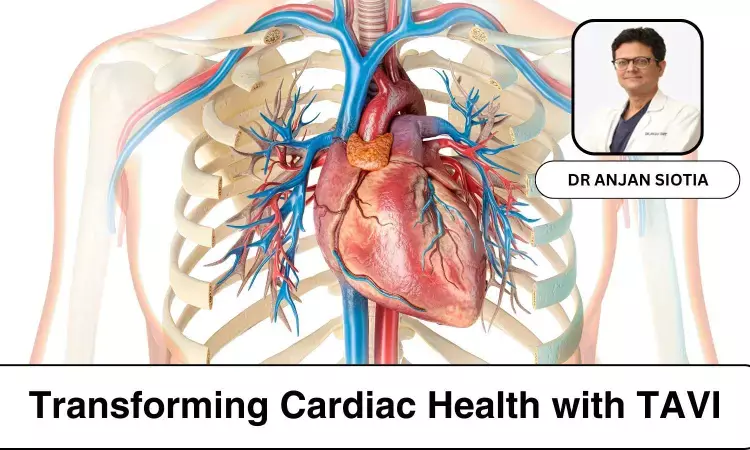- Home
- Medical news & Guidelines
- Anesthesiology
- Cardiology and CTVS
- Critical Care
- Dentistry
- Dermatology
- Diabetes and Endocrinology
- ENT
- Gastroenterology
- Medicine
- Nephrology
- Neurology
- Obstretics-Gynaecology
- Oncology
- Ophthalmology
- Orthopaedics
- Pediatrics-Neonatology
- Psychiatry
- Pulmonology
- Radiology
- Surgery
- Urology
- Laboratory Medicine
- Diet
- Nursing
- Paramedical
- Physiotherapy
- Health news
- Fact Check
- Bone Health Fact Check
- Brain Health Fact Check
- Cancer Related Fact Check
- Child Care Fact Check
- Dental and oral health fact check
- Diabetes and metabolic health fact check
- Diet and Nutrition Fact Check
- Eye and ENT Care Fact Check
- Fitness fact check
- Gut health fact check
- Heart health fact check
- Kidney health fact check
- Medical education fact check
- Men's health fact check
- Respiratory fact check
- Skin and hair care fact check
- Vaccine and Immunization fact check
- Women's health fact check
- AYUSH
- State News
- Andaman and Nicobar Islands
- Andhra Pradesh
- Arunachal Pradesh
- Assam
- Bihar
- Chandigarh
- Chattisgarh
- Dadra and Nagar Haveli
- Daman and Diu
- Delhi
- Goa
- Gujarat
- Haryana
- Himachal Pradesh
- Jammu & Kashmir
- Jharkhand
- Karnataka
- Kerala
- Ladakh
- Lakshadweep
- Madhya Pradesh
- Maharashtra
- Manipur
- Meghalaya
- Mizoram
- Nagaland
- Odisha
- Puducherry
- Punjab
- Rajasthan
- Sikkim
- Tamil Nadu
- Telangana
- Tripura
- Uttar Pradesh
- Uttrakhand
- West Bengal
- Medical Education
- Industry
Transforming Cardiac Health: Exploring the Innovation of TAVI in Aortic Stenosis Management - Dr Anjan Siotia

Q. What is aortic stenosis, and why is it frequently seen in older patients?
A. Aortic stenosis (AS) is a condition where the aortic valve, which is one of the four valves of the heart, is degenerated and does not open properly. Since it is a degenerative condition and occurs most commonly due to ‘wear and tear’ of the valve, it is most commonly seen in old age people.
Q. What are the challenges associated with the traditional approach to treating aortic stenosis?
A. The main challenge with the traditional approach is that elderly patients tend to have many other comorbidities, thereby making open heart surgery and replacement of the valve a very high-risk procedure.
Q. Could you explain how transcatheter aortic valve implantation (TAVI) revolutionized the treatment of aortic stenosis, and what makes it an attractive alternative to open heart surgery?
A. TAVI involves replacement of the aortic valve under local anaesthesia, from the groin, through a small hole in the groin artery. This has revolutionized the treatment of Aortic Stenosis (AS) as there is no need for general anaesthesia and no need to cut open the chest for a high-risk open heart surgery.
Q. How has the acceptance of TAVI changed over time, and which patients find this procedure beneficial?
A. The acceptance for TAVI is universally great. Patients can walk the next day and go home in 2-3 days. There is no scar and recovery is very quick. Procedural risk is extremely low and long term results are as good or better than open heart surgery.
Q. How does TAVI work? What are its shortcomings, and is it unsuitable for some patients?
A. The TAVI valve is passed in a crimped state over a catheter inserted from the groin. Under X-ray guidance, the valve is positioned inside the native aortic valve and deployed by various mechanisms from the groin. The procedure in simple and quick. There are hardly any short comings. A very small proportion of patients are unsuitable due to adverse anatomical reasons.
Q. What is the difference between TAVI and stenting?
A.TAVI is a treatment for aortic valve while stenting is meant to clear blockages in heart arteries.
Q. What are the benefits of TAVI?
A. TAVI is minimally invasive. It does not require general anaesthesia. It has a quick recovery rate. It has low risk and yields very good long term results.
Disclaimer: The views expressed in this article are of the author and not of Medical Dialogues. The Editorial/Content team of Medical Dialogues has not contributed to the writing/editing/packaging of this article.
Dr Anjan Siotia MBBS, MD (Medicine), CCT (Cardiology) is the Director of Cardiology at B M Birla Heart Research Centre, Kolkata having experience of over 25 Years of, Dr Anjan Siotia specializes in the field of Cardiology with a special interest in Cardiac Devices, TAVI (Transcatheter Aortic Valve Implantation) and Complex angioplasty.


